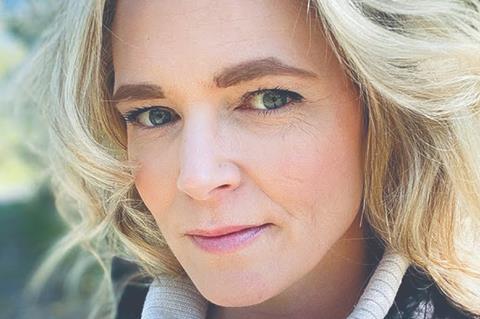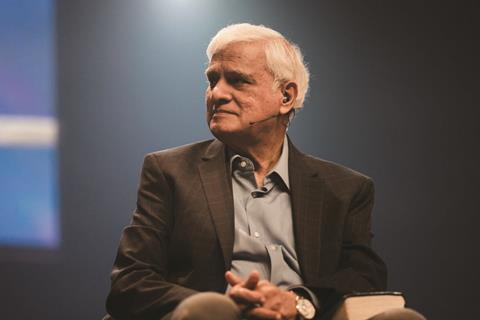As an explosive new report into Ravi Zacharias International Ministries reveals the toxic culture that enabled an abuser to go undetected for years, Megan Cornwell looks at the lessons for the Church
Within days of the death of Ravi Zacharias from cancer at the age of 74, eulogies in praise of four decades of effective evangelism rolled in. The vice president of the United States at the time, Mike Pence, lamented the loss of “the greatest Christian apologist of this century”, and Christian leaders from Christine Caine to Matt Redman gushed tributes on social media. Around the world, thousands mourned one of the foremost defenders of Christianity’s intellectual credibility.
From India to Illinois, Zacharias’ passionate gospel presentations had inspired generations of Christians to articulate their reasons to believe and, by the time of his death in May 2020, his eponymous multi-million-dollar ministry employed 300 people in 16 countries. Ravi Zacharias International Ministries (RZIM) – “Helping the thinker believe and the believer think” – resonated across diverse cultures and denominations.
But within four short months of the obituaries bearing his name, the venerated image of an anointed preacher had come crashing down.
Betrayal blindness
In September 2020, three women came forward accusing the leader of sexual misconduct. All worked in spas frequented by Zacharias – for the supposed purpose of relieving his chronic back pain. Over a period of five years, they said he had groped them, exposed himself and masturbated during regular treatments.
The posthumous report commissioned by RZIM confirmed “significant evidence of sexual misconduct” over many years and in multiple contexts, as well as “text- and email-based relationships with women who were not his wife”.

The findings described a man who was adept at grooming women, particularly those with trauma in their past or who had financial challenges. He would employ spiritual language to ingratiate and then justify his abuse. One interviewee said he called her his “reward” for living a life of service to God, and warned her not to speak out or she would be responsible for the loss of “millions of souls”.
The wider Christian community was unwilling to believe that one of their heroes of the faith was a wolf in sheep’s clothing
Given the extent of Zacharias’ wrongdoing, why did it take so long for his conduct and character to be revealed? And, more importantly, what can the Church learn from a global ministry’s failure to identify and deal with its founder’s abuse? After all, warning lights had been flashing on the proverbial dashboard at RZIM for years.
Dr Amy Orr-Ewing, who became senior vice president at the ministry in 2019, says the team had their first indication that “something was wrong” three years before Zacharias’ death, when a woman named Lori Anne Thompson and her husband, Brad, accused the septuagenarian of initiating an inappropriate relationship. The couple had met Zacharias at a Christian event years earlier and, according to them, the apologist had nurtured a friendship with Lori Anne.
Over many months Zacharias encouraged her to share increasingly intimate and confidential details, including the childhood abuse she had suffered. In turn, Thompson saw Zacharias as a trusted father figure. The dynamic changed, however, when Zacharias requested photos of her – initially clothed, but later nude.
In 2016, after revealing the nature of the relationship to her husband, the couple’s solicitor wrote “a letter of demand” to Zacharias, which included a request for payment in lieu of the harm caused to Lori Anne and to her marriage. Zacharias counter-sued them in response.
At RZIM headquarters the story was being framed differently: “This is a person who is seeking to extort this very godly evangelist,” Orr-Ewing remembers being told. It was “fake news”, “a big spiritual attack” and RZIM employees should “trust their leaders”. “That spiritual language – I mean, it sounds crazy when you say it now – but it was really effective because it appealed to people’s piety and desire to be loyal and supportive to somebody who was under attack.”
Even when the existence of a Non-Disclosure Agreement (NDA) became known, preventing Zacharias or the Thompsons talking openly about the details of their legal settlement, employees were informed that it was primarily to protect the couple’s privacy. “It was deeply, deeply troubling. Lots of people on the team were really disturbed by that,” explains Orr-Ewing. “Many of us questioned the rightness of a Christian organisation using NDAs.” But reassurances were given.
The board of directors had fully investigated the allegations, they were told, and Zacharias’ own denomination, the Christian and Missionary Alliance, had found no evidence of wrongdoing. What’s more, money had not changed hands – or so they thought. “One came to a point of thinking: We just have to accept this situation,” says Orr-Ewing. It later transpired that Zacharias had effectively bought the Thompsons’ silence to the tune of $250,000. But in the meantime, RZIM was busy sending statements to the press presenting Zacharias as the injured party.
“Ravi was positioned as the victim in the story, when actually the victim was the woman who had been abused by him,” says Orr-Ewing, who has now come to recognise this behaviour in psychological terms as “DARVO”. The acronym is used to describe the manipulative behaviour of an abuser intent on obfuscation: Deny, Attack and Reverse the Victim/Offender. But at the time, the tactic was difficult to discern. The predatory image presented by Zacharias’ accusers simply did not match the respected man at the apex of his ministry career whom she knew personally and admired professionally.
This inability to believe that someone we trust and respect could be guilty of grave wrongdoing is what investigative reporter Julie Roys describes as “betrayal blindness”. She says: “It is our predisposition to excuse the negative facts and believe – almost to a ridiculous point – the person that we’ve put on a pedestal. I think that’s what happened within RZIM.” The ministry’s initial response to the spa allegations certainly suggest it was a factor. In a denial statement sent to Christianity Today, the American publication that broke the story, RZIM said the charges of sexual misconduct “do not in any way comport with the man we knew for decades”.
When Roys finally published her report on the veracity of the Thompsons’ allegations “the backlash was virulent”, she says. It seemed the wider Christian community was unwilling to believe that one of their heroes of the faith was a wolf in sheep’s clothing.
Shadow culture
In November 2022, a group of Christian theologians released a statement responding to what they saw as the egregious failings of the RZIM senior leadership team and board of directors to hold Zacharias to account. In an explosive document signed by Dr William Lane Craig and other eminent apologists, a toxic culture in which “serious injustices and abuses perpetrated against former RZIM employees” was laid bare.
Staff members who “pushed back” or asked legitimate questions about allegations surrounding Zacharias were “intimidated, mistreated, or retaliated against by RZIM’s Senior Leadership Team”, they said. Some were pressurised into signing NDAs and others “remain in therapy” for the “spiritual abuse” they experienced as the global ministry attempted to wrestle a ferocious reputational risk back into its cage.
The problems with organisational culture that the 2022 report identified are, according to Justin Humphreys, central to any discussion about what the Church can learn from the Zacharias scandal. The CEO of Christian safeguarding charity Thirtyone:eight believes “shadow cultures”, present in many ministries, can play an important role in abuse cases. “One of the things that we identify around culture is that if we’re not sufficiently attentive on an ongoing basis, then what we call ‘shadow cultures’ emerge – those things which become custom and practice by mistake, because we weren’t alive to them and didn’t challenge them when they first arrived.”
Had RZIM been rooted in a healthy culture, the sins of its founder might have been identified far earlier – or even prevented
According to Humphreys, shadow cultures run in parallel to an organisation’s existing culture, but largely go unacknowledged or unopposed. They are the behaviours displayed by colleagues, or the privileges conferred on particular members of staff, which demonstrate “an alternative set of rules are being used”.
In the case of RZIM, this might include Zacharias’ use of a personal phone and email address instead of official work ones, or the encrypted BlackBerry he owned, from which messages were not retrievable once deleted. These kinds of “low level” concerns can be a subtle indicator of deeper organisational health issues, warns Humphreys. They should be called out in an appropriate way and “without fear of retribution or penalty”.
During a discussion on Premier’s ‘Unbelievable?’ podcast, Dr Orr-Ewing talked about the “subtle red flags” around Zacharias’ character that had been observed at RZIM for years: “There was a sense of exceptionalism around him,” she said. “There were sets of rules that applied to everyone but not to him. One that springs to mind is around days of travel on the road. Everybody on the team signed a covenant to agree to be away only 120 days a year, so that you could be in your local church two Sundays a month. Zacharias would boast every single year: ‘Oh, I’ve been away for 300 and whatever days,’ and openly flout the value that had been set in place to protect the integrity of gospel ministry.”

Who was Ravi Zacharias?
Frederick Antony Ravi Kumar Zacharias was born in Madras, India, in 1946, and spent most of his childhood in Delhi, after his parents – who were Christian – moved there when he was young. His life might have ended in suicide at 17 had he not converted to Christianity while convalescing in hospital. Thanks to the intervention of a Youth for Christ director, the teenager gave his life to God, rediscovered his purpose, and later went on to share the good news of Jesus on five continents.
After immigrating to Canada in 1966, Zacharias studied theology at Ontario Bible College and completed a Masters of Divinity at Trinity International University. He was ordained with the Christian & Missionary Alliance (C&MA) and spent several years as an itinerant preacher, travelling to different countries sharing the gospel. In 1984 Ravi Zacharias International Ministries was founded in Ontario. Its headquarters later moved to Atlanta, Georgia, in the US.
According to RZIM’s 2015 tax return, Zacharias and his wife, Margaret (the ministry’s vice chairman), earned a combined total of $523,926 that year. In 2016 RZIM registered with the Internal Revenue Service as an “association of churches” meaning they no longer had to disclose salaries or tax returns.
Around the same time, a California-based lawyer, Steve Baughman, accused Zacharias of inflating his qualifications and misleading Christians about his academic experience. RZIM later edited his online biography to remove references to ‘Dr’ Zacharias.
When allegations of sexual abuse surfaced following Zacharias’ death in May 2020, C&MA revoked his ordination. HarperCollins confirmed they would stop printing his books.
In March 2021, RZIM announced it would be changing its name and mission. Over 60 per cent of the workforce lost their jobs in the restructure.
Blind spots
Alongside shadow culture, Humphreys says Christians must be vigilant of organisational blind spots that can facilitate abusers. At RZIM, the governance structure, which included a board made up of members of Zacharias’ own family, was one such example: “When the power within an organisation or setting is held almost exclusively by a group of individuals who have a familial connection, that power imbalance is almost insurmountable…It presents a challenge to accountability, it presents a challenge to diversity of perspectives, it presents challenge in terms of how preference and privilege is experienced…I genuinely do not believe that there is an ability to put survivors first when you have such a close familial relationship to the perpetrator.”
Had RZIM been rooted in a healthy culture – one where channels of open and honest communication existed, where effective governance, transparent processes and leaders who challenged unsafe behaviour were welcome – the sins of its founder may have been identified far earlier, or even prevented, suggests Humphreys. What a sobering thought. Especially when you consider the many people who were scarred by their encounter with Zacharias; not only the women directly impacted by his abuse, but those in his broader sphere of influence who were bullied into silence, dismissed for speaking up or who lost their livelihoods as the ministry collapsed.
CHRISTIANS MUST BE VIGILANT OF ORGANISATIONAL BLIND SPOTS THAT CAN FACILITATE ABUSERS
The Bible teaches that sin has a snowball effect – it starts with temptation but quickly grows: “After desire has conceived, it gives birth to sin; and sin, when it is full-grown, gives birth to death” (James 1:15). What happened at RZIM should act as a cautionary tale for us all. Shadow cultures haunt other Christian organisations, too. NDAs are just one example of the weapons of this world employed to silence and subdue within the kingdom.
While the Zacharias scandal might seem extreme, there are many lessons to be learned from it. Ultimately, Zacharias remains responsible for his behaviour and will give an account to God, but those around him played a part too. Had the senior leadership team been braver in calling out the subtle signs of spiritual ill-health – in Zacharias and the wider organisation – they might have averted disaster. Had they been more sceptical and asked more questions when allegations first surfaced, perhaps the perpetrator would have faced justice this side of heaven.
In our own churches and ministries, there will be signs of healthy culture – those things that promote truth, esteem equality and seek justice. But there will also be those who close down communication, discourage diversity of opinion and which prefer the few over the many. When it comes to shadow culture and blind spots, Lord, give us eyes to see.






































5 Readers' comments